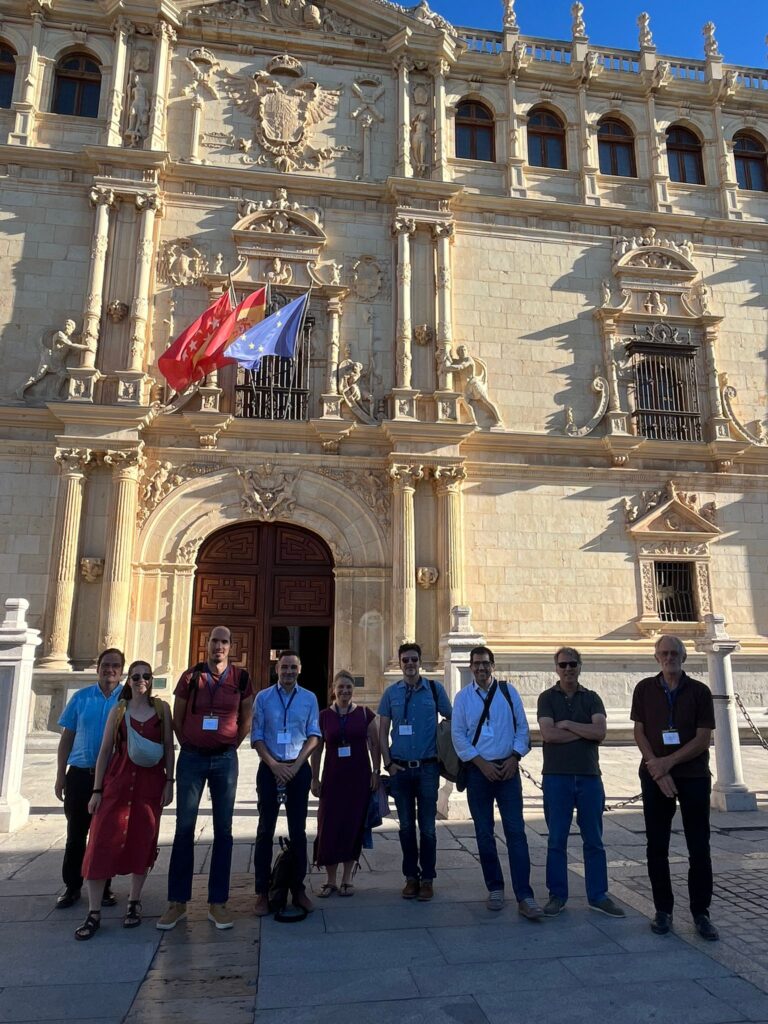The DEEPCEL (Digital Electronic with Eco-designed Paradigm in Collaborative Enhanced Learning) consortium recently concluded a successful two-day training event aimed at higher education teachers in electronics and related fields. Held at the University of Alcalá (UAH) from September 11-12, 2025, this event marked a significant milestone in promoting sustainability and eco-design in electronics education.
The first day began with a warm welcome from Carlos Cruz, setting the stage for an engaging and informative series of sessions. Lena Costecalde from the University of Tours kicked off with an introduction to sustainable projects, emphasizing the importance of eco-design and the challenges of the circular economy. This was followed by a remote session on Life Cycle Analysis (LCA) for electronics by Hugo Helbling from the University of Lyon, who provided valuable insights into LCA tools and methodologies also highlighting the limits. Cristian Zambelli from the University of Ferrara then delved into open hardware modularity, showcasing the benefits of open-source designs and modular circuits. The use of open hardware must be spread more and more in educational contextes. The day concluded with Lenka Koskova Triskova from the Technical University of Liberec discussing sustainable software design and best practices to design long term supported embedded systèmes. The use of open-source electronic hardware and design tools was particularly noteworthy, as it already empowers educators to implement sustainable practices in their teaching.
The second day focused on the recoverability and reusability of electronics, with Nicolas Perry from the University of Bordeaux presenting remotely on Industry 4.0 tools and end-of-life strategies for critical materials recovery. He insisted on the facts that recycling is not sufficient and that chip or system recovery, reparation and reuse should be the future.
Gaelle Berton from the University of Tours wrapped up the sessions with a comprehensive overview of educational strategies for teaching sustainability, highlighting curriculum integration, interdisciplinary methods, and circular design pedagogy. The interdisciplinary projects she developed at Polytech Tours were able to skill students about sustainability issues.
In conclusion, the DEEPCEL consortium has made good strides in the field of eco-design and sustainable practices in electronics. The training program successfully combined theoretical knowledge with practical examples, providing participants with hands-on tools, case studies, and collaborative projects.

A picture of some participants in the E1 training course in Alcalá de Henares.
#Electronics #FPGA #STEM #Education #Sustainability #Ecodesign
Leave a Reply